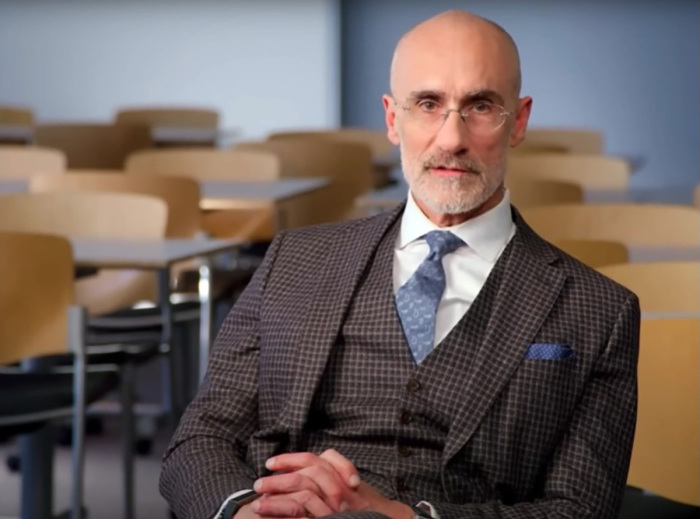Urges people to stop the ‘doom loop’ of checking phone apps

Boredom can play a crucial role in the human experience, according to Harvard professor Arthur C. Brooks, who warns in a recent Harvard Business Review video that avoiding boredom can prevent people from asking deeper questions about life and lead to anxiety and depression.
In the video, titled “You Need to Be Bored,” Brooks, who’s also a former president of the American Enterprise Institute, frames boredom not as a flaw but as a feature of the human mind. Brooks explains that when people are unoccupied, their brains activate what scientists call the “default mode network.” This process, he said, naturally steers thoughts toward larger questions about meaning and purpose.
“When you think about nothing, while your mind wanders and thinks about, for example, big questions of meaning in your life — what does my life mean? — you go to kind of uncomfortable existential questions when you’re bored,” Brooks said. “That turns out to be incredibly important, incredibly good.”
He contrasted this with modern habits of quickly reaching for a smartphone to fill any idle moment, even a few seconds waiting at a traffic light. This constant stimulation, he says, disrupts the mind’s natural reflective processes and leads to what he called a “doom loop of meaning.”
“One of the reasons that we have such an explosion of depression and anxiety in our society today is because people actually don’t know the meaning of their lives, much less so in previous generations,” Brooks said. “We’ve been able almost completely to shut off the default mode network in our brains” through constant device use.
Brooks pointed to a Harvard psychology experiment in which participants were instructed to sit in silence for 15 minutes with nothing to do. The only option available in the room was a button that delivered a painful electric shock. Rather than remain unoccupied, most participants chose to shock themselves — some repeatedly — instead of enduring boredom. He said the avoidance of quiet reflection shows how deeply people resist confronting uncomfortable thoughts.
As practical advice, Brooks urged viewers to create intentional spaces for boredom by limiting device use. He described his own habits, such as avoiding phones after 7 p.m., not sleeping with a phone in the bedroom, and banning devices at family meals. In addition, he said he takes periodic “screen cleanses,” setting aside longer stretches of time without social media or electronic distractions. Though initially difficult, he said the practice becomes easier over time and helps restore focus.
“Start getting better at periods that are 15 minutes and longer of boredom and watch your life change,” Brooks said. “You’ll start digging into the biggest questions in your life: purpose, meaning, coherence, significance — and who knows? You might just get happier.”
This article was originally published at Christian Daily International
Christian Daily International provides biblical, factual and personal news, stories and perspectives from every region, focusing on religious freedom, holistic mission and other issues relevant for the global Church today.

















